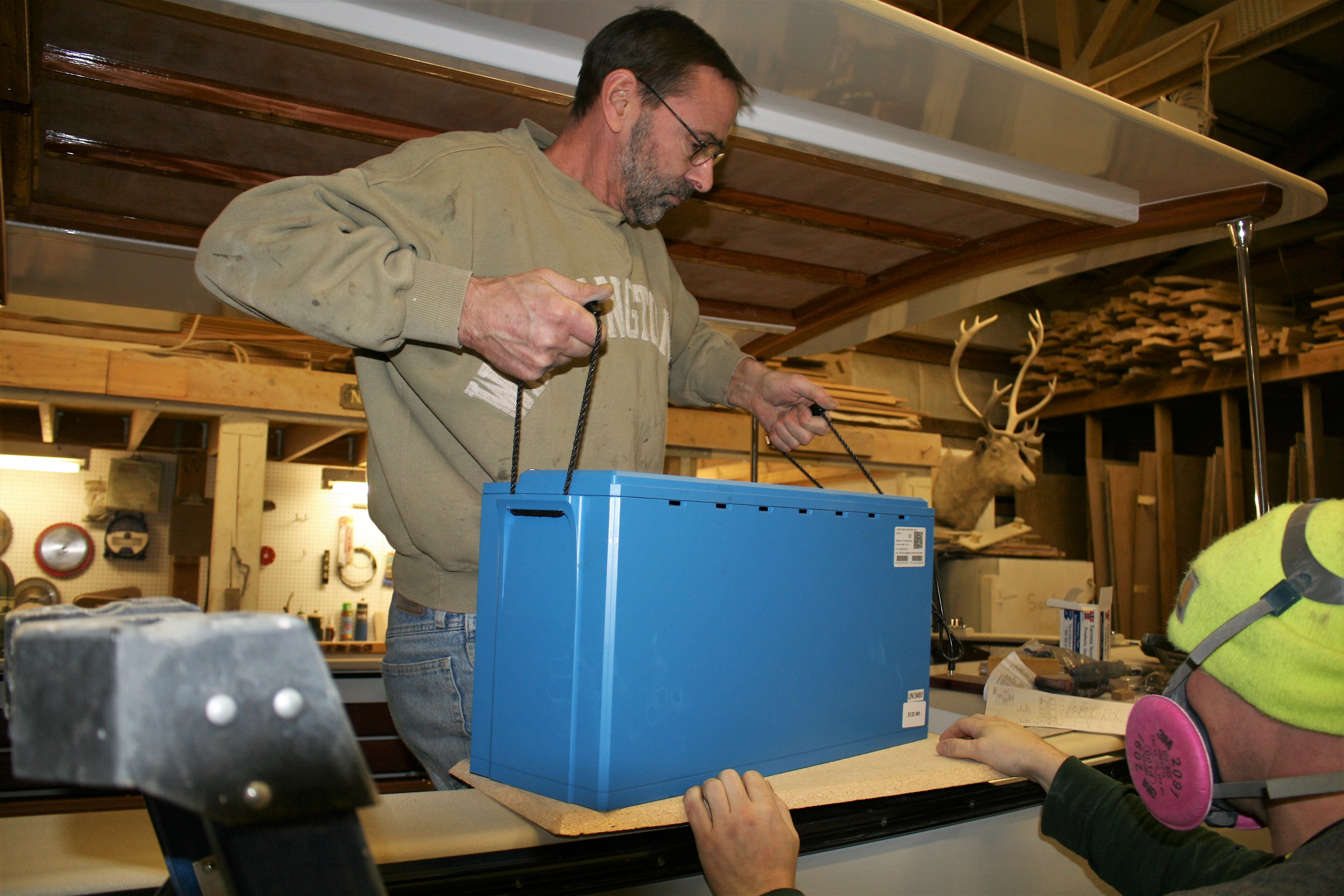Installation of lithium batteries has reportedly voided some marine insurance policies due to the risks of fires. This becomes a major concern in the push to for more electric powered or hybrid diesel-electric vessels, particularly in the commercial fishing industry.
But in a recent article in Professional Boatbuilder magazine, Ed Sherman, the former curriculum designer for the American Boat and Yacht Council (ABYC) reported that the organization has tested and developed standards for lithium batteries that could make them more acceptable to marine insurers.
Lithium-ion batteries are vulnerable to thermal runaway, an internal, uncontainable, exothermic reaction. An extremely thin polyethylene barrier separates the cathode and anode of a lithium-ion battery. If that barrier is damaged, it can lead to a short circuit and decomposition of materials inside the cell, quickly raises the battery temperature to the melting point of the metallic lithium, leading to a violent self-heating chain reaction.
In a thermal runaway event, a battery can heat up to over 1112°F in a matter of seconds, releasing gases that can cause an explosion and a fire impervious to standard water and CO2 fire extinguishers.
The ABYC tried to replicate “sketchy” installations of standard quality battery systems and found a few problems but no fires or explosions. According to Sherman, a quality battery management system, and correct installation should mitigate the dangers, and open the door to insurance friendly electric conversions.
While the ABYC standards reportedly do not differentiate between newer LiFePo (lithium iron phosphate) batteries and the earlier, more dangerous, lithium-ion technology, Sherman, in his article, compares having a correctly installed and managed LiFePo battery with having a propane system on a vessel.
Nonetheless, while onboard systems may conform to standards, many sources report that some of the worst marine fires attributed to lithium-ion batteries comes from devices on board, including the personal electronics of passengers and crew.







